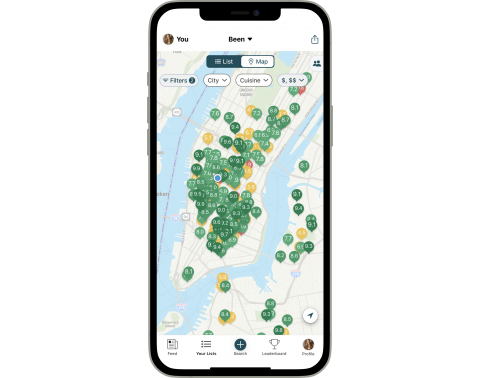🇫🇷 ⚖️ French MPs want have been inspired by their Italian counterparts. They want to ban the production and marketing of cultivated meat in France. While this has little chance to move forward, it surely doesn’t help the local ecosystem.
🇳🇬 🛵 Jumia, one of the most well-known African startups (both a large marketplace and payment services), announced that it will shut down its food delivery operations. This comes as competition intensifies and as the startup tries to become profitable as fast as possible. It shows, once again, how hard food delivery can be until you’ve reach market dominance in your market (such as DoorDash in the US).

🇺🇸 🍽️ Beli, a new restaurant discovery app, raised $3.5M. It enables you to track, note, and share restaurants with friends. While the business model is far from obvious, it seems to address a real pain point around social discovery: while other apps enable you to have the opinion of one friend (or an influencer) or the average opinions of everybody, it is more relevant to have the average opinions of your friends and the people you follow.
🇳🇱 🚛 RTI Blockchain, a Dutch startup, raised €2.5M to bring sustainability to logistics by tracking reusable transport items.
🇺🇸🌱 NewLeaf Symbiotics, a US startup, raised $45M for its microbial biostimulants that boost growth. With this funding, it will keep growing the number of farms it serves and will develop new biopesticides and biostimulants.
🇳🇱💊 NutriLeads, a Dutch startup, raised €4.5M for its prebiotic ingredient that boost gut health and immunity.
🇺🇸🥛 Perfect Day, an American startup, raised $90M, as its founders step away (and will not even be part of the board). While Perfect Day is leading in the precision fermentation space (using microorganisms to produce animal proteins) with more than $800M raised, it is also under pressure to deliver more results for its investors after it pivoted its business model to be 100% B2B-focused.
🇺🇸 🥑 Guac, a US-based startup, raised funding to predict grocery demands and reduce waste. Helping stores to predict their sales of fresh food products is a growing concern (alongside food waste), and a new generation of startups is developing software to change what is still mostly guesswork.







